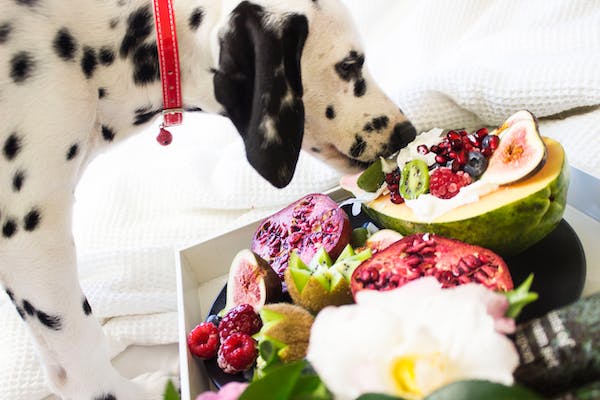Dogs are not only our loyal companions but also members of our families. We want to ensure that they lead healthy and happy lives, and one aspect of their well-being is their diet. While dogs primarily thrive on a diet of quality dog food, there is a growing interest in incorporating fruits into their diets. Fruits can be a healthy addition to a dog’s diet, providing essential vitamins, minerals, and fiber.
However, not all fruits are safe for dogs to consume. In this article, we will explore the dos and don’ts of feeding fruits to your canine companion.
The Benefits of Feeding Fruits to Dogs
Before diving into which fruits are safe for dogs, let’s first understand why some pet owners choose to incorporate fruits into their furry friends’ diets:
- Nutrient-Rich: Many fruits are packed with essential nutrients, including vitamins (such as A, C, and K), minerals (like potassium), and dietary fiber, which can support your dog’s overall health.
- Low in Calories: Fruits are generally lower in calories than many commercial dog treats, making them a healthier option for dogs that need to watch their weight.
- Natural Antioxidants: Fruits often contain antioxidants, which can help boost your dog’s immune system and protect against chronic diseases.
- Hydration: Fruits with high water content, such as watermelon and cucumbers, can help keep your dog hydrated, especially during hot weather.
- Dental Health: Some fruits can aid in cleaning your dog’s teeth, promoting better oral health.
Now that we’ve established the potential benefits of feeding fruits to dogs, let’s examine which fruits are safe for them and which should be avoided.
Safe Fruits for Dogs
- Apples: Apples are an excellent source of vitamins A and C, as well as dietary fiber. Make sure to remove the seeds and core, as they contain small amounts of cyanide, which can be harmful to dogs.
- Blueberries: These tiny berries are packed with antioxidants and can be a tasty and healthy treat for your dog.
- Strawberries: Strawberries are rich in vitamin C and fiber. They make for a delightful, nutritious snack when given in moderation.
- Watermelon: This fruit is hydrating and low in calories. Remove the seeds and rind before offering it to your dog.
- Bananas: Bananas are a good source of potassium and can be a nutritious occasional treat for your dog.
- Oranges (in moderation): While oranges are high in vitamin C, they should be given sparingly due to their acidity. Remove the seeds and offer small, peeled pieces.
- Cantaloupe: This fruit is a great source of vitamins A and C. Remove the seeds and rind before serving.
- Pineapple: Pineapple contains bromelain, an enzyme that can aid in digestion. Offer small, bite-sized pieces to prevent choking.
- Cranberries: Cranberries can be beneficial for urinary tract health, but they are often too tart for dogs to eat plain. Opt for unsweetened dried cranberries in small quantities.
- Blackberries: These berries are rich in antioxidants and fiber and can be given to your dog as an occasional treat.
- Peaches (in moderation): Peaches provide vitamins A and C but should be given in small amounts without the pit.
- Pears (in moderation): Pears are a good source of dietary fiber and vitamin C. Remove the seeds and core before sharing them with your dog.
- Mango (in moderation): Mangoes are packed with vitamins A and C but should be given in moderation due to their sugar content. Remove the pit and skin.
- Papaya (in moderation): Papaya contains enzymes that aid in digestion and is a source of vitamins A and C. Remove the seeds and skin.
- Raspberries: Raspberries are another fruit rich in antioxidants and fiber, making them a healthy treat for dogs.
It’s important to remember that while these fruits are generally safe for dogs, they should be offered in moderation as part of a balanced diet. Always consult with your veterinarian before introducing new foods to your dog’s diet, especially if your pet has any underlying health conditions or allergies.
Fruits to Avoid
While many fruits are safe for dogs, there are several that should be strictly avoided due to their toxicity or potential for choking hazards:
- Grapes and Raisins: Grapes and raisins can lead to kidney failure in dogs and should never be given to them.
- Cherries: Cherries contain pits that can be a choking hazard, and the pits also contain cyanide, which is toxic to dogs.
- Avocado: Avocado contains a substance called persin, which can be toxic to dogs when consumed in large quantities.
- Citrus Fruits: While small amounts of oranges are generally safe, citrus fruits like lemons, limes, and grapefruits can cause gastrointestinal upset in dogs.
- Stone Fruits: Fruits with pits, such as peaches, plums, and apricots, should be avoided due to the choking hazard posed by the pits.
- Persimmons: The seeds in persimmons can cause intestinal blockages in dogs.
- Rhubarb: Rhubarb leaves are toxic to dogs, so avoid this plant altogether.
- Fruit Seeds and Cores: In general, avoid giving your dog the seeds and cores of fruits as they may contain toxins or choking hazards.
- Canned Fruits: Canned fruits often contain added sugars and preservatives, which are not suitable for dogs.
- Unripe Fruits: Unripe fruits can be difficult for dogs to digest and may cause gastrointestinal discomfort.
- Fruits with Added Sweeteners: Fruits with added sugars or artificial sweeteners, such as xylitol, should be avoided, as they can be toxic to dogs.
- Moldy or Spoiled Fruits: Moldy or spoiled fruits can produce mycotoxins, which are harmful to dogs.
Remember that every dog is different, and some may have allergies or sensitivities to certain fruits. It’s essential to introduce new fruits slowly and in small amounts to monitor your dog’s reaction.
Preparing Fruits for Your Dog
When offering fruits to your dog, it’s crucial to prepare them properly to ensure your pet’s safety:
- Wash fruits thoroughly to remove any pesticides or contaminants.
- Remove pits, seeds, and cores from fruits that contain them.
- Cut fruits into small, bite-sized pieces to prevent choking.
- Peel fruits with tough or indigestible skins, such as mangoes and papayas.
- Always remove any inedible parts before feeding fruits to your dog.
- Monitor your dog while they eat fruits to ensure they don’t choke or swallow large pieces.
- Offer fruits as an occasional treat, not as a primary food source.
- Consult your veterinarian if you have any concerns or questions about feeding fruits to your dog.
Incorporating fruits into your dog’s diet can be a healthy and enjoyable way to provide essential nutrients and variety in their meals. However, it’s crucial to be informed about which fruits are safe and which should be avoided, as well as how to prepare them correctly.
Remember that moderation is key, and always consult with your veterinarian before making significant changes to your dog’s diet, especially if they have underlying health issues. With the right knowledge and care, you can safely offer your furry friend a tasty and nutritious fruit treat from time to time, contributing to their overall well-being and happiness.
















